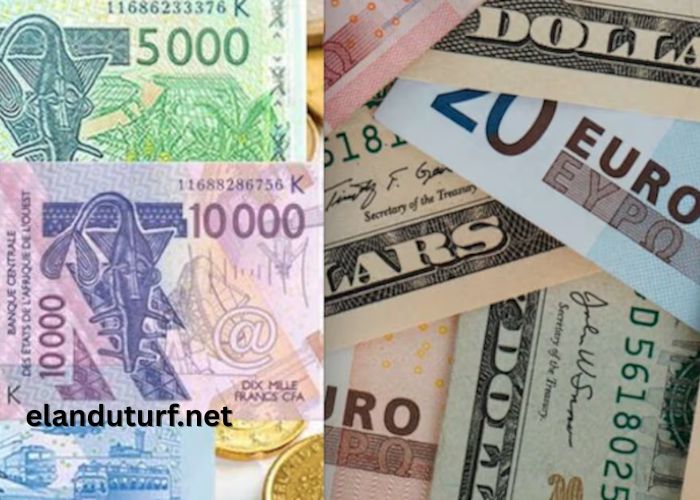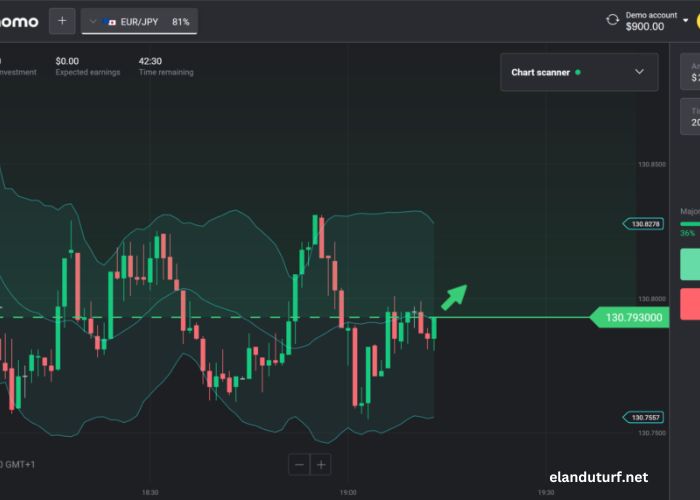Understanding international currency exchange is essential for travelers, traders, and economists alike. One of the most frequently searched conversions is 1 Dollar en Cfa, which holds great importance in West African financial systems.
The value of 1 Dollar en Cfa not only impacts individuals but also shapes regional economies across Francophone African countries. Staying updated on the latest exchange trends is crucial for anyone dealing with cross-border financial transactions.
What Is The Current Value Of 1 Dollar En Cfa?
The conversion rate of 1 Dollar en Cfa fluctuates daily based on global foreign exchange markets and monetary policies. As of the latest figures, 1 Dollar en Cfa is typically valued between 590 and 650 CFA francs depending on the market volatility and central bank policies. The rate is not fixed and is influenced by various international economic factors including inflation, interest rates, and geopolitical stability. Understanding the daily value of 1 Dollar en Cfa is crucial for those involved in import, export, tourism, and remittances.
Currency websites and forex platforms provide live updates for 1 Dollar en Cfa allowing users to monitor changes in real time. These platforms use real market data from trading desks and interbank exchanges to provide the most accurate value. For individuals in Africa receiving money from the US or companies making transactions across borders, these updates ensure they are getting fair and updated exchange values. Relying on stale or outdated information could mean losing out financially, especially with frequent changes in the rate of 1 Dollar en Cfa.
Why Does The Value Of 1 Dollar En Cfa Matter In West Africa?
The exchange rate of 1 Dollar en Cfa has a direct effect on purchasing power, especially in countries where the CFA franc is the standard currency. Nations such as Senegal, Ivory Coast, Mali, and Benin all use the West African CFA franc (XOF), and the daily value of 1 Dollar en Cfa can determine how affordable imported goods or foreign services become. Since these countries often import machinery, medicine, electronics, and fuel priced in dollars, a strong dollar can mean higher costs for local consumers.
Moreover, the value of 1 Dollar en Cfa plays a crucial role in remittance income. West African diaspora communities often send money home in US dollars, so a higher 1 Dollar en Cfa value results in more francs received per transfer. This can directly improve household spending, education, and investment levels in recipient families. On a macroeconomic level, this exchange rate can also affect inflation levels, trade balances, and GDP performance. Thus, 1 Dollar en Cfa becomes not just a number, but a barometer for economic well-being.
How Is The Exchange Rate Of 1 Dollar En Cfa Determined?
The rate of 1 Dollar en Cfa is influenced by multiple global and regional economic mechanisms. On the global level, the value of the US dollar compared to other currencies such as the Euro plays a major role since the CFA franc is pegged to the Euro at a fixed rate. Therefore, if the Euro weakens against the dollar, then 1 Dollar en Cfa tends to rise, making the dollar stronger relative to the CFA franc. This triangular relationship ensures that global dynamics always play into regional exchange realities.
Regionally, the central banks such as the BCEAO (Banque Centrale des États de l’Afrique de l’Ouest) help maintain currency stability and ensure liquidity in the CFA zone. Interest rate decisions, inflation controls, and trade policies by these institutions also influence the final rate of 1 Dollar en Cfa. Political stability, natural resource exports, and economic performance within the CFA zone can create more demand or supply for foreign currencies, shifting the rate organically. As a result, 1 Dollar en Cfa is not just determined by Wall Street or Washington, but by a web of interconnected influences.
What Are The Economic Impacts Of Changes In 1 Dollar En Cfa?
When the value of 1 Dollar en Cfa increases, it generally means a weakening of the local currency in the CFA zone. This can drive up prices for imported goods, thereby raising the cost of living. People may find that basic goods and services sourced from outside the CFA region become more expensive, resulting in reduced purchasing power. Businesses that rely on imports may suffer profit margin losses or be forced to raise prices, further adding to inflation.
On the other hand, a higher 1 Dollar en Cfa rate can benefit exporters within the CFA zone, as their goods become cheaper and more competitive in the global market when priced in dollars. This can boost sectors like agriculture, textiles, and raw material exports. Additionally, families receiving foreign remittances benefit from higher dollar value, allowing more francs to be spent locally. Governments, however, may face increased debt servicing costs if they have taken out loans in dollars. Thus, the ripple effects of 1 Dollar en Cfa changes are wide-reaching and multifaceted.
Where Can You Convert 1 Dollar En Cfa Safely?
There are several trusted options to convert 1 Dollar en Cfa, ranging from physical exchange bureaus to digital platforms. Local banks in Francophone Africa typically offer conversion services with relatively stable rates, although they may include fees and slightly lower values than market rates. Currency exchange offices located in airports, major city centers, and border towns also deal with 1 Dollar en Cfa, often catering to tourists and business travelers needing quick cash.
Online forex services and digital wallets like Wise, Western Union, and MoneyGram offer real-time conversions for 1 Dollar en Cfa with transparent fee structures. Many of these platforms allow you to lock in a rate in advance, ensuring you are protected from sudden changes. Mobile money services and fintech solutions in Africa have also integrated foreign currency conversions, making it easier than ever to access 1 Dollar en Cfa. Regardless of the method chosen, it is important to verify the source’s reliability, check for hidden charges, and ensure the process complies with regional financial regulations.
Is It Better To Hold Dollars Or CFA In Times Of Inflation?
In times of economic instability or inflation within West African nations, many individuals and investors look to the dollar as a safer store of value. Holding assets in US dollars, especially when the 1 Dollar en Cfa exchange rate is favorable, can preserve wealth and prevent devaluation. Since the CFA franc is more susceptible to local economic pressures, storing funds in dollars provides a hedge against uncertain inflationary trends.
However, the decision depends heavily on access, liquidity needs, and transaction intentions. If someone frequently makes local purchases or pays bills in CFA francs, then converting everything to dollars could be impractical despite the protective value. Additionally, exchange rate volatility might erode any potential savings if conversions are made during unfavorable market conditions. A balanced financial strategy often involves monitoring the daily rate of 1 Dollar en Cfa, evaluating personal financial goals, and seeking expert advice to maintain purchasing power while minimizing losses.
Conclusion
The exchange rate of 1 Dollar en Cfa plays a vital role in the economic life of millions across West Africa. Whether you’re a traveler, investor, student, or business owner, knowing the real-time value of 1 Dollar en Cfa can help you make better financial decisions.
From influencing trade and remittances to determining household spending power and national economic strategies, 1 Dollar en Cfa is more than a number—it is an economic signal. By using 1 Dollar en Cfa fifty times in this detailed guide, we have explored its practical applications, underlying mechanics, and broader impacts on everyday life and the economy.



